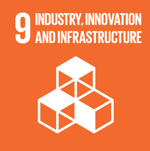Community Micro Processing, Social Construction of Cocoa Quality
 Costa Rica
Costa Rica
 Panama
Panama
Executive Summary
This project was developed with the purpose of strengthening the livelihoods of families dedicated to the production of cocoa in the Costa Rica-Panama bi-national basin of the Sixaola River, and with the goal of reducing the vulnerability of these producers and families to extreme hydrometereological events. The co-executing organizations (APPTA and COCABO) represent about 3000 producers, who gained access to the transfer of knowledge and technologies developed in the framework of this joint effort.
Under the leadership of the National University of Costa Rica, the coordination of key cocoa sector representatives in both territories constituted a first achievement. This network, made up of people focusd on the sensory quality of cocoa, included academics, technicians, producers, industrialists and private sector consultants, among others. Through 3 workshops, 2 solar drying systems were designed and built using photovoltaic panels, which also enable access to electricity and connectivity in isolated communities. A guide to good fermentation and drying practice was developed oriented to cocoa production with high quality standards.
The initiative evidenced the importance of strengthening fermentation and drying technologies towards the design of qualities directed by a micro fermentation system for microbiological strains with potential for the production of highly specialized cocoa.
Results
- Pilot solar drying systems for micro-processing cocoa were designed and built using photovoltaic panels with the goal of minimizing reported losses by up to 50%. Dryers have the capacity to process 200 kg / week, which is sufficient for current and future productivity.
- State-of-the-art genomic analysis was carried out to identify microbiological variability associated with territories, transformation phases and total cocoa quality. It led to the identification of more efficient organisms for the production of inoculants.
- Workshops were organized for the participatory analysis of physical and social risks, opportunities and weaknesses that could result in disasters in the face of extreme natural phenomena or regional weather changes.
- The project generated tasting and good practice guides for fermentation and drying, easily interpreted and available to all concerned.
- Producers received training to recognize sensory profiles and differentiation of cocoa qualities
- The project activated a network of professionals, responsible for the production, processing and commercialization of cocoa in the regions of interest.
Beneficiaries
The project worked and directly benefited 60 cocoa-producing families, who were present in the training, demonstrations, participatory analysis of risks and opportunities derived from climatic variation and in the design, construction and testing of the solar dryers.
The information and experiences generated have been and will be accessible to 3,000 producers in the two bi-national basins, who will have access to the tasting and good practice guides for fermentation and drying of cocoa.
Sustainable Development Goals





Project news
Participating Organizations
Executor
- Fundación para el Desarrollo Académico de la Universidad Nacional (FUNDAUNA) - Costa Rica
Co-executor
- APPTA - Costa Rica
- COCABO - Panamá
Graphics and data
Financing by country (in USD)











